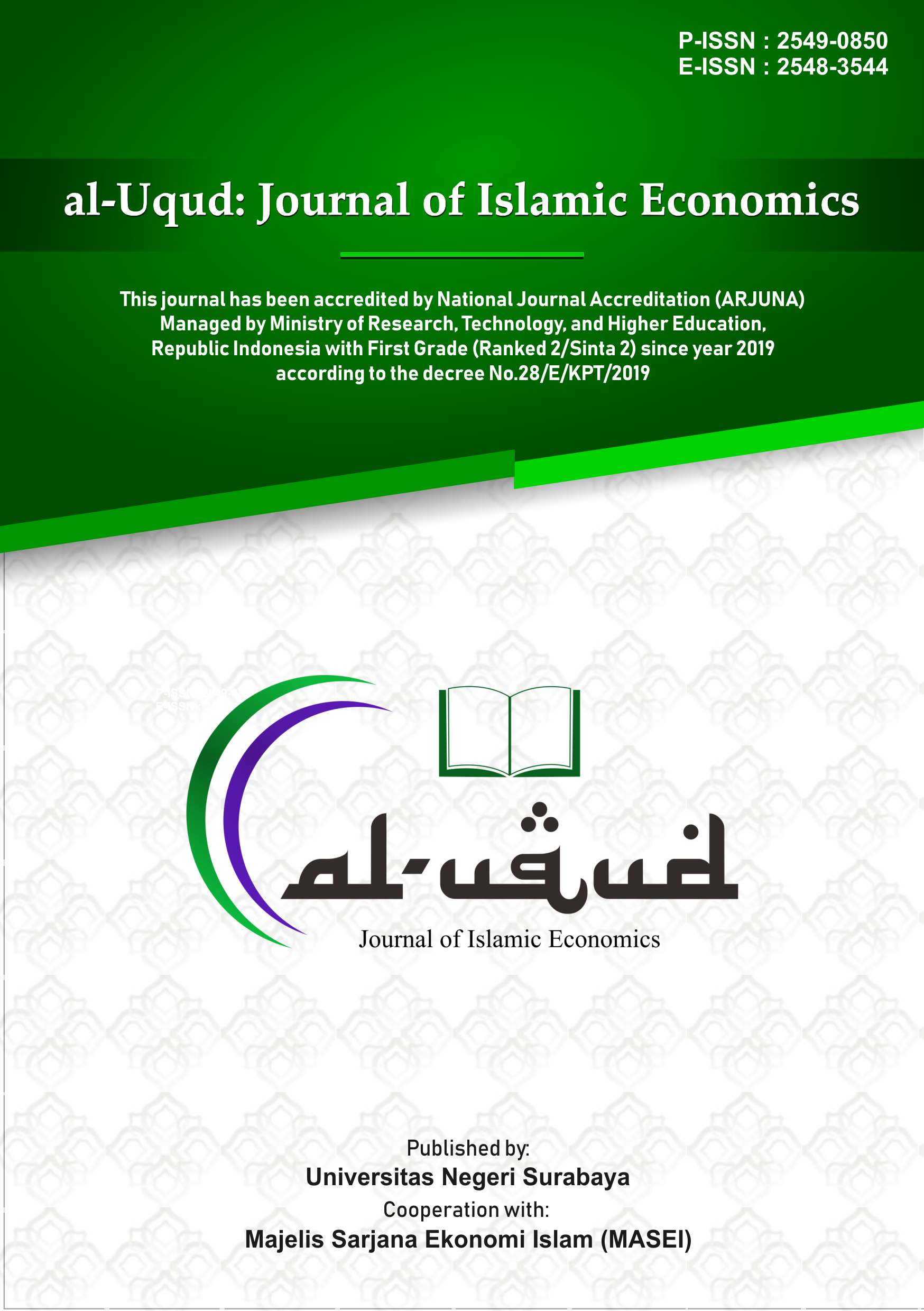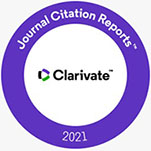A bibliometric analysis of research on zakat: Past trends and future directions
DOI:
https://doi.org/10.26740/aluqud.v6n2.p160-176Abstract
Zakat is a part of Islamic social finance that aimed at the social purpose and has been recently received attention from researchers globally. Therefore, the study aimed to explore the current state of zakat literature, identify the bibliometrics in the field, and provide future research direction. To achieve this goal, this study utilised bibliometric analysis using VOSviewer software. The documents were extracted from the Scopus database on 5th March 2021 with the search keyword Zakat and its variations. The result showed 635 documents in 267 journals and revealed approximately 1289 authors. The papers came from 53 countries and 160 affiliations roughly. Based on co-occurrence, the analysis identified 1488 keywords and the word zakat, Islam, Malaysia, Poverty, and zakat institution as the top five frequent keywords. The study also revealed the current trend of zakat studies related to education, performance, SME, and compliance. The most important of this study, seventeen zakat issues, were provided for future research agenda. Henceforth, the following research might focus on this study's suggestions to enrich and enhance zakat literature.
References
Apriliyah, R. P. (2021). Studi Bibliometrik Dan Systematic Literature Review Pada Literatur Zakat [UNIVERSITAS AIRLANGGA]. https://repository.unair.ac.id/108729/
Fauzia, A. (2013). Faith and the state: A history of Islamic philanthropy in Indonesia. In Faith and the State: A History of Islamic Philanthropy in Indonesia (Vol. 1). Brill. https://doi.org/10.1163/9789004249202
Gantira Mira, I., Lubis, M., Puspitasari, W., & Ridho Lubis, A. (2020). ERP system implementation with accounting modules in national amil zakat institutions. IOP Conference Series: Materials Science and Engineering, 801(1). https://doi.org/10.1088/1757-899X/801/1/012117
Hanifah, M., & Nurzaman, M. S. (2019). Institutional performance analysis of Amil Zakat institution in Indonesia. In Challenges of the Global Economy: Some Indonesian Issues. Nova Science Publishers, Inc.
Kuran, T. (2003). Islamic redistribution through zakat historical record and modern realities. In Poverty and Charity in Middle Eastern Contexts. State University of New York Press.
Niswah, I. D., Marlina, L., & Rahayu, S. S. (2020). A Review of Zakat Studies in ASEAN. Ekonomi Islam Indonesia, 2(1).1-13. https://doi.org/10.18756546
Uyob, R. Bin. (2020). Current Research in Zakat Accounting Research. In Journal on Technical (Vol. 5, Issue 1). http://upikpolimas.edu.my/ojs/41
Wahyuni-TD, I. S., Haron, H., & Fernando, Y. (2021). The effects of good governance and fraud prevention on performance of the zakat institutions in Indonesia: a Shar??ah forensic accounting perspective. International Journal of Islamic and Middle Eastern Finance and Management, 14 (4), 692-712. https://doi.org/10.1108/IMEFM-03-2019-0089
Widyaningsih, N. A., Nurzaman, M. S., & Huda, N. (2019). Evaluating zakat performance in daerah istimewa yogyakarta. In Contemporary Issues on Business, Development and Islamic Economics in Indonesia. Nova Science Publishers, Inc.
Yusuf, A. O., & Yerima, B. (2020). Evaluation of Development in Zakat Literature: A Scientometrics Analysis. In International Journal of Zakat (Vol. 5, Issue 1). https://doi.org/https://doi.org/10.37706/ijaz.v5i1.196
Downloads
Published
How to Cite
Issue
Section
License
Copyright (c) 2022 The author(s)

This work is licensed under a Creative Commons Attribution 4.0 International License.
CC BY 4.0 Abstract views: 1267
,
Abstract views: 1267
, PDF Downloads: 995
PDF Downloads: 995








